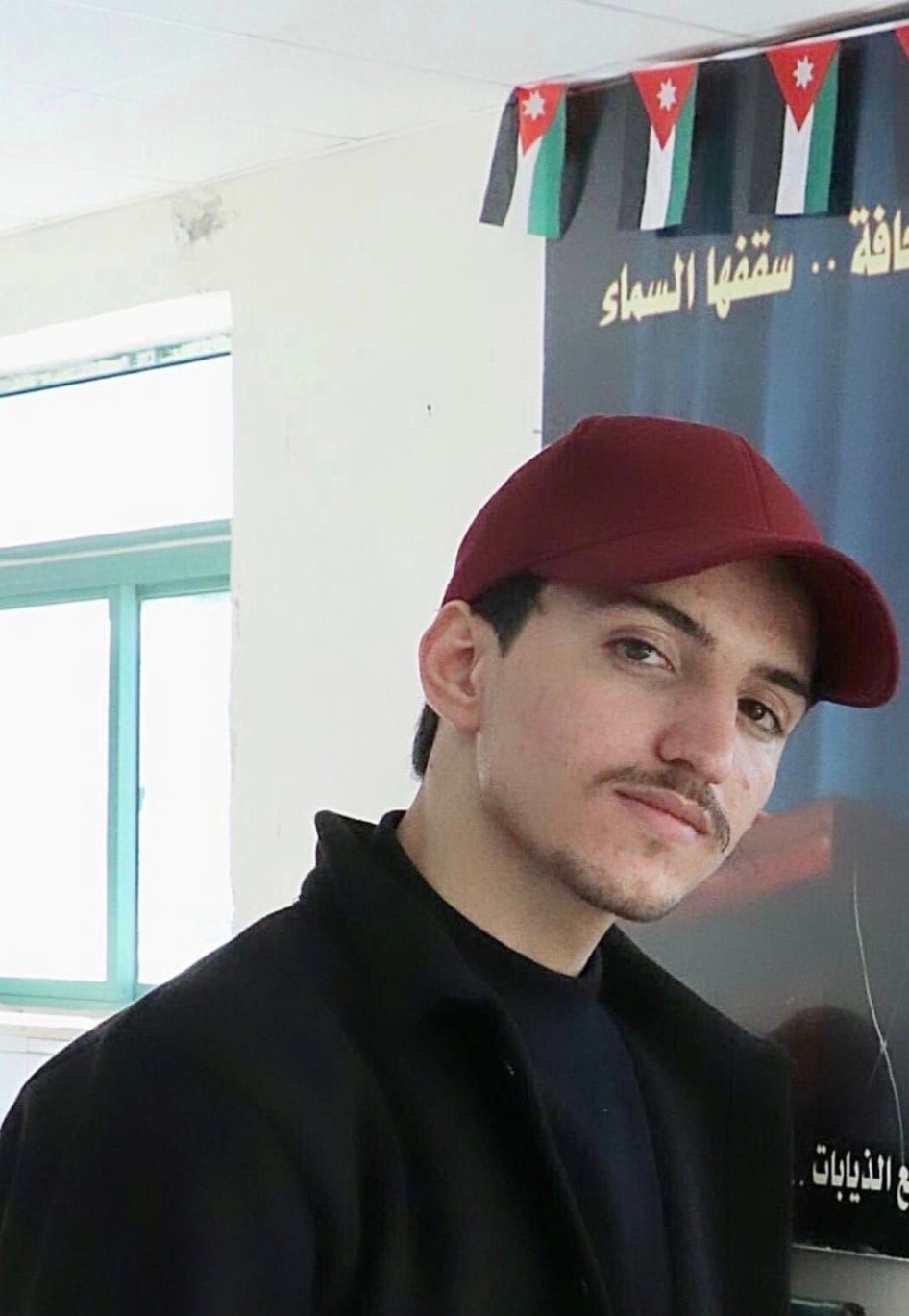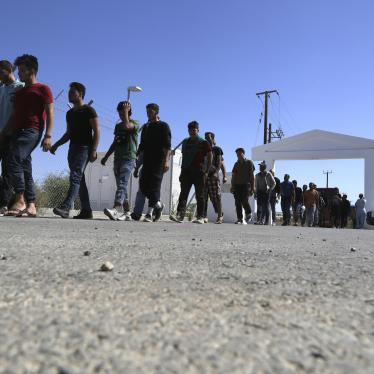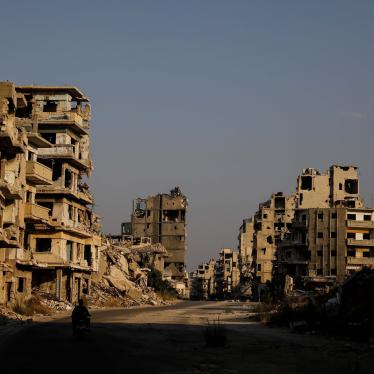(Amman) – Jordanian authorities should halt the imminent deportation of a Syrian communications student who faces a significant risk of persecution if forcibly returned to Syria, Human Rights Watch said today.
The police arrested Atia Mohamad Abu Salem, 24, and a Jordanian friend on April 9, 2024, as they were on their way to film a demonstration in solidarity with Palestinians in Gaza in Amman. He and a number of his family members, known for their opposition to President Bashar al-Assad’s rule in Syria, have been registered as asylum seekers with the United Nations High Commissioner for Refugees (UNHCR), since 2013. Jordanian authorities later ordered Abu Salem’s deportation without a court order or realistic ability to challenge the order.
“Jordanian authorities are on the verge of deporting a 24-year-old Syrian student who has lived half his life in Jordan without charging him for a crime or presenting him before a judicial body and merely for attempting to document a rally in solidarity with Gaza,” said Adam Coogle, deputy Middle East director at Human Rights Watch. “Nobody should face deportation without due process, especially when their life and well-being are at stake.”
The unlawful deportation of Abu Salem, who is originally from Daraa governorate in southern Syria, would violate the customary international law principle of nonrefoulement, which forbids governments from returning people to places where they have a well-founded fear of persecution or other serious abuses.
While parts of Syria have not had active conflict hostilities since 2018, Syria remains unfit for safe and dignified refugee returns. Human Rights Watch has documented numerous instances where Syrian security agencies have arbitrarily detained, kidnapped, tortured, and killed refugees who returned to Syria from Jordan and Lebanon between 2017 and 2021. As recently as July 2023, Human Rights Watch found that returnees had been tortured in Syrian military intelligence custody and conscripted to serve in Syria’s military reserve force. Other human rights groups, the UN Commission of Inquiry (COI) on Syria, and UNHCR also maintain that Syria remains unsafe for returns. In March 2024, the COI declared that Syria is experience a “new wave of violence” not seen since 2020.
Human Rights Watch spoke to Ahmad Sawai, a lawyer with the freedoms committee at the Jordanian Bar Association who is representing Abu Salem; to Hadeel Abdel Aziz, the executive director of the legal aid group Justice Center for Legal Aid (JCLA), whose lawyers are also representing Abu Salem in administrative proceedings; and to a relative of Abu Salem abroad.
The lawyers said that Abu Salem has been held in administrative detention by order of Amman’s governor without charge and without being brought before a prosecutor or judge. The Jordanian Interior Ministry issued a deportation order against Abu Salem even though he has asylum seeker status. Lawyers with JCLA requested a copy of the order and appealed it in Jordan’s administrative court on April 15.
Abu Salem told his lawyer that during his interrogation at the Central Amman Police Directorate in the Abdali neighborhood, security officers coerced him into letting them search his phone, and repeatedly threatened to deport him. Abu Salem was then taken to the General Intelligence Directorate (GID), followed by the Shmeisani police station and back to the police directorate in Abdali, where he remains.
Abu Salem is a student at Yarmouk University’s Faculty of Mass Communications in the northern town of Irbid, nearing graduation and an independent filmmaker. He fled Syria with members of his family in April 2013 following the reported killing of his father by Syrian government forces in the city of al-Hirak in Daraa in August 2012. A relative abroad said that family members have long been vocal in opposition to President al-Assad’s rule and that one of Abu Salem’s brothers, who fled in 2018, is wanted by Syrian security forces for his activism. He said that Syrian officials have arrested or harassed various family members over the years and that security forces still inquire about those who have left.
“Atia’s pursuit of media studies alone could result in punishment in Syria,” the relative said. “And the very act for which it seems he is being deported carries the risk of severe persecution in Syria. On top of that, the family’s decision to flee Syria to begin with is viewed as incriminating in the eyes of the Syrian regime.”
If returned to Syria, Abu Salem would also be subject to military conscription, for which evaders can face arrest and detention.
“Atia loves Jordan, and our family is grateful they are there,” his relative said. “If he did something wrong, try him in court, but please don’t deport him to Syria.”
Lawyers told Human Rights Watch about another case in which a Syrian in Jordan is at risk of deportation in relation to the pro-Palestine protests and one involving a Jordanian-born Syrian national with a Jordanian mother whose deportation order was canceled after lawyers and activists intervened in his case.
Over recent years, Jordan has experienced a protracted shrinking of civic space, with the authorities increasingly persecuting citizens and residents engaged in peaceful organization and political dissent and using vague and abusive laws that criminalize speech, association, and assembly. Since October 2023, Jordanian authorities have arrested and harassed scores of Jordanians who participated in pro-Palestine protests across the country or engaged in online advocacy, bringing charges against some of them under a new, widely criticized cybercrimes law.
International donor governments should use their leverage to advocate against summary deportations and forced returns, which amount to a breach of nonrefoulement obligations, Human Rights Watch said.
“Jordan’s rush to unlawfully deport a Syrian media student for simply seeking to document a peaceful pro-Palestine protest is incredibly alarming and tramples upon both the right to free expression and the principle of nonrefoulement,” Coogle said.









